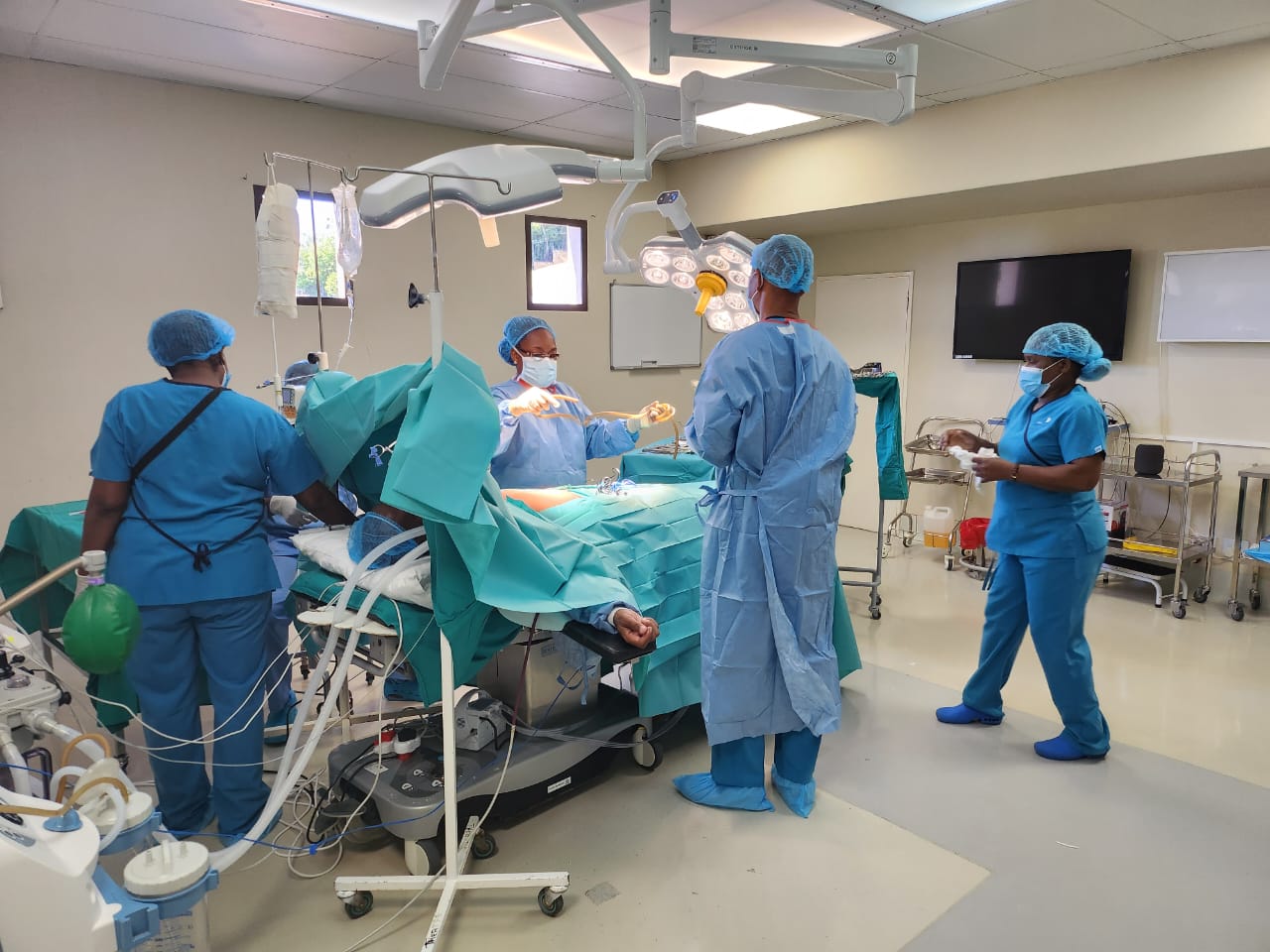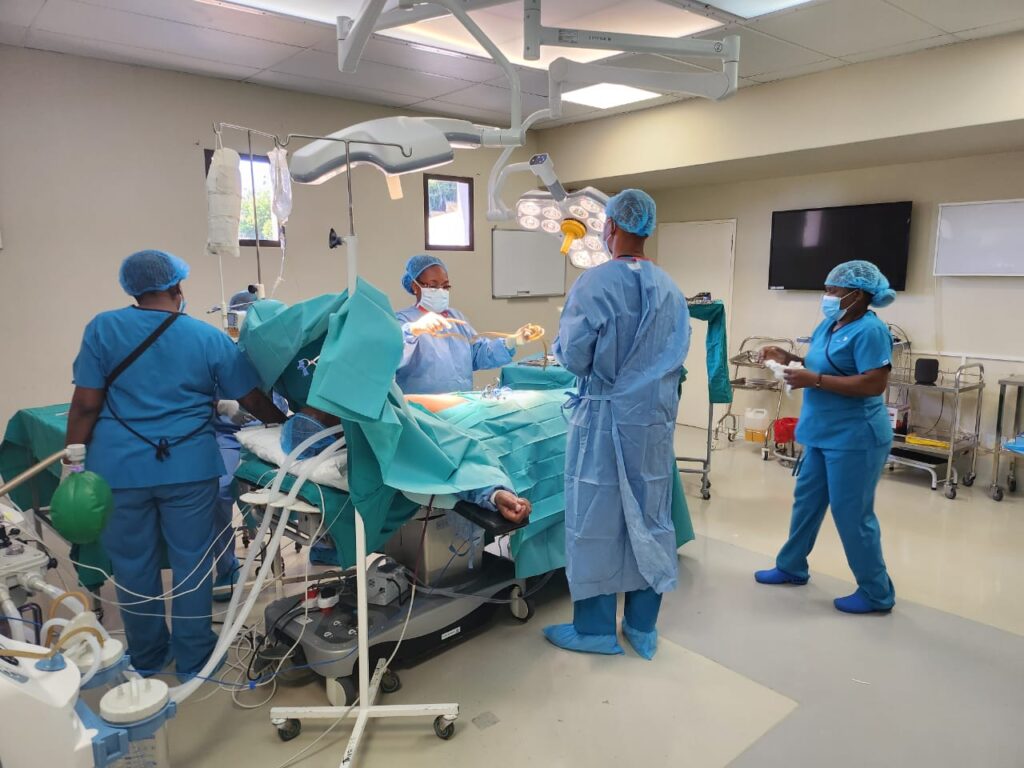
By Karabo Ngoepe and Phephile Motau
As countries on the African continent push to break into first-world status, the quality of their health care has taken centre stage along with those of education and infrastructure development.
Many countries have relied on outsourcing their health care needs and difficult surgical procedures. Many African leaders will even travel outside their countries to receive good and adequate health care.
However, some organisations and companies have leapt to change that and offer high-level health care and complicated surgeries within their borders. Eswatini’s The Clinic Group, a subsidiary of Inyatsi Group of Companies, has undertaken the mettle of bolstering its medical offerings and challenging South Africa’s medical dominance in the region.
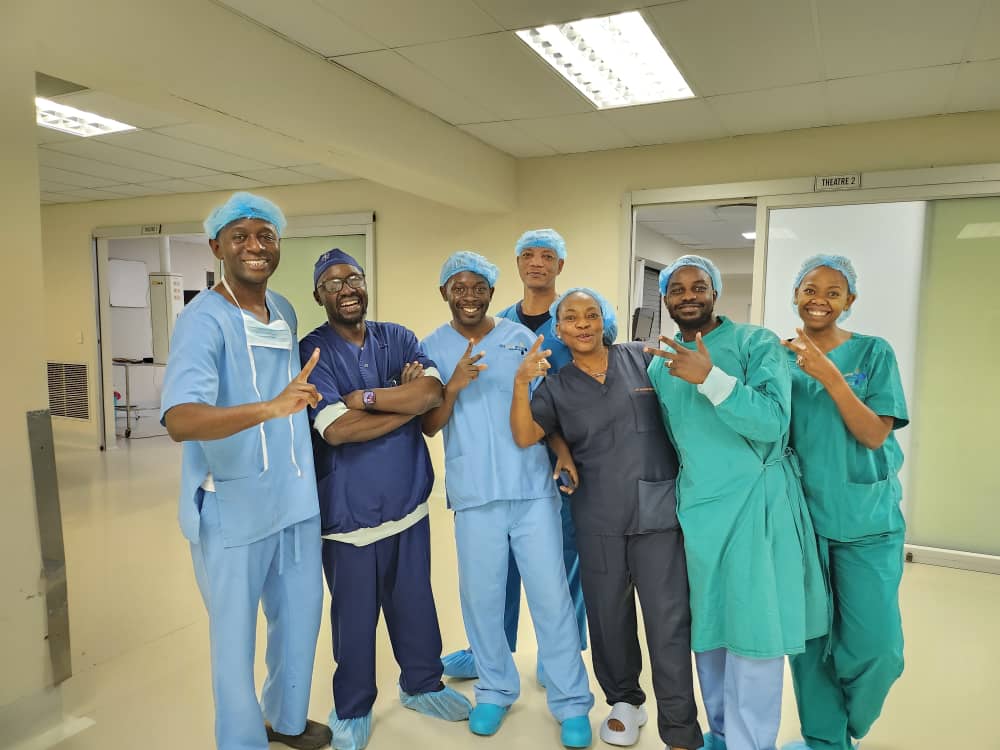
The company’s Mbabane Clinic made history when it performed the first of its kind in the country, an 18-hour complex surgery that showcased the capabilities and abilities of its doctors.
Whipple Procedure
The Clinic successfully undertook a stomach-preserving pancreaticoduodenectomy operation, also known as a Whipple procedure was carried out at the Mbabane Clinic by a team of three surgeons, an anaesthetic, a head nurse, a runner and a marketing team to capture the historical moment.
The procedure involves the removal of part of the stomach, part of the small intestine which is called the duodenum and removing the head of the pancreas and what is connected to it, meaning the duct which brings bile from the liver plus the gallbladder.
Read More:
Head Surgeon, Professor Jackson Chipaila said the process involves removing all these organs as one and then removing the tumour before having to reconnect them.
The Whipple procedure is used to treat tumours and other disorders of the pancreas, intestine and bile duct. It is the most often used surgery to treat pancreatic cancer that’s confined to the head of the pancreas. Medical journals and doctors say the Whipple procedure is a difficult and demanding operation and can have serious risks. However, this surgery is often lifesaving, particularly for people with cancer.

“We must find a way to reconnect the small intestines with the stomach. We also must connect the pancreas to the intestine and lastly reconnect the liver to the intestines so that the bile that the liver is producing can continue to flow into the stomach to help with digestion,” Chipaila explained.
Price
Medical procedures like the Whipple, carry with them a hefty price bill which runs into millions but through the groundbreaking work done by the team, the patient was able to save money. Instead of millions, the procedure cost just over E500 000 and also ensured that the patient was closer to home and loved ones.
Due to the complexity of the operation and the number of veins and nerves involved, getting to the theatre rooms requires a lot of investigation and an understanding of the anatomy. This is done to ensure the team understands the depth of the cuts and how the reconnection is going to happen.
“What helps determine how far you will cut are the investigations you have on the patient before you operate. These investigations involved the CAT scan and MRI scan, which help determine the exact location of this cancer.”
Chipaila explained that based on these scans, “you are able to reconstruct the patient’s internal organs and plan how far you will go in terms of resection, which means cutting out tissue or part of an organ, and which part of the other organs you will have to cut. When it comes to reconstruction, it depends on what you have cut because what you want is to retain the normal anatomy or return the continuity or flow of whatever this organ is producing.”
Team
The procedure required precision, unity and meticulous attention to detail from all those involved. Normally, this high-level surgery can never be done by an individual and everywhere in the world, “the only way these operations become successful is the unity of purpose in the team.”
For hours on end, at least six hands sat in unison and held open the patient’s abdomen as the head surgeon meticulously cut and removed the tumour. For many, this might sound light and even be thought to be a less important role in the entire surgery process but it’s not.
“Without those hands being present, it makes it impossible even for the best surgeons to be able to execute their operations successfully.”
Read More: King’s dream of turning Hlane into a bustling cultural town coming true
For many, an 18-hour straight shift sounds like a daunting task and would in most instances come with a dip in energy and concentration levels. That was not the case in the theatre room. It was a jovial mood with the doctors listening to music as they went about their business. There was laughter, dance and even banter.
“When you have such an atmosphere, there was no anxiety. Instead, what was there was the feel-good atmosphere and realising that we were with colleagues who wanted to make things work out. And of course, we were all in that place with one single goal which made it easy for the team to give results because there was no division within the team, but it was a united team which was focused on achieving the goal of safe operation.”
Excitement
Specialist surgeon and head of the surgery department Dr Caeser Okello Okumu said there was a mixture of excitement and anxiety. But overall, they all wanted the job done well as they had to squeeze six different operations into one.
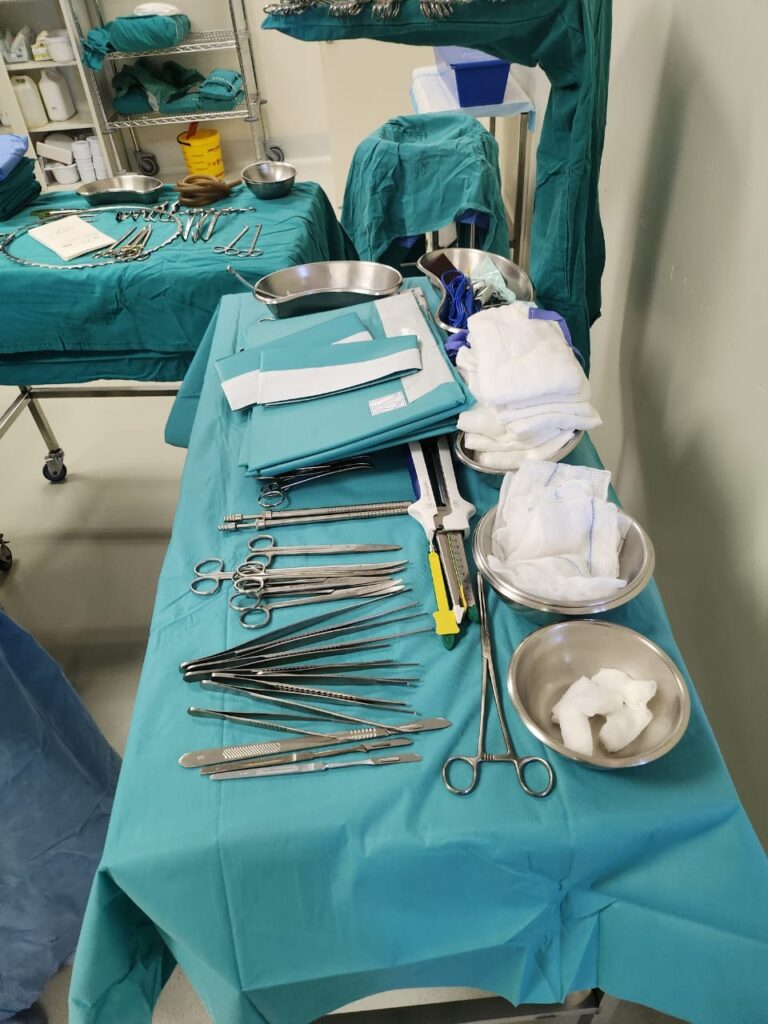
“Every hour you can see the progress that you have made. The unique thing about this operation is that it is long because it’s made up of six independent operations which on their own take two to three hours. Now you are bringing these operations together to solve that one problem with the pancreas, which is a central organ in the digestive system. Each time you go past one stage of the operation, you get more energy to get to the next,” Dr Okello said.
Clinic Group Acting CEO, Dr William Tsikisayi commended the Group Chairman Michelo Shakantu who allowed them to operate and proceed within the facility. He also thanked the CEO of the Inyatsi Group Investment Cluster, Paul Lwiindi who made the procedure possible by getting external doctors to come and also The Clinic Group CEO “who enabled us to utilise the hospital.”
“I also commend Dr Okello who from the first day of diagnosis has been here. We used minimal equipment. We had challenges with equipment, but the team was resilient,” Tsikisayi said.
Milestone
Assistant Surgeon Dr Benjamin Mwape said the team put pressure on themselves because they wanted the process to go smoothly and in the end, they achieved their objectives with minimal fuss.
“It was a bit of a difficult case and gave us quite a lot of pressure because we wanted it done without certain complications and indeed it was finally successful.”
He further said: “Now that we have done this we are on a different pedestal and it is an issue of us maintaining the tempo.”
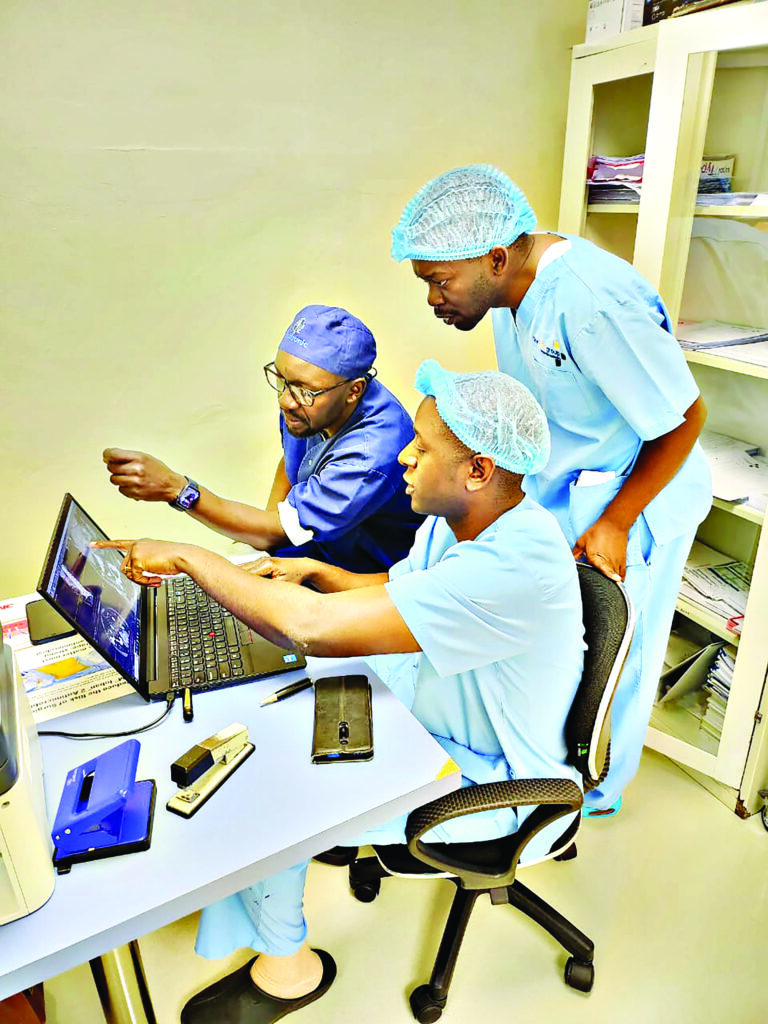
In Dr Mwape’s view, the successful operation is a huge milestone for the medical fraternity in Eswatini “and we need to commend ourselves as a team for achieving this. This is very important and to get to realise that we have been able to achieve this gives us the morale and the zeal that much more can be achieved as a team.”
The Clinic Group now has 11 specialities and state-of-the-art equipment at its two medical centres in Manzini and Mbabane. The newest is a paediatric surgeon. Dr Tsikisayi added that The Clinic Group was expanding its services in terms of general surgery.
Future
The Clinic Group provides private healthcare services to people residing in Eswatini. It has three clinics: Mbabane Clinic and Manzini Clinic, which are open 24 hours a day, 7 days a week; and Matsapha Healthcare Clinic, a specialist day clinic that is open Monday to Friday 8 am to 4.30 pm.
The 24-hour clinics offer outpatient and inpatient services, including General Practitioners, Specialists, High Care certified units, obstetrics and nurseries, assistance with pre-authorizations for medical aid and insurance purposes and assistance for transfers to hospitals beyond the borders for surgeries currently not being performed.
The Matsapha Healthcare Clinic offers a full range of specialists to meet all your healthcare needs. The Clinic Group now wants to ensure all surgeries and procedures are conducted in Eswatini. Dr Tsikisayi said they are in the process of procuring more machines for different specialities. Furthermore, Dr Tsikisayi said there are a lot of things that are planned, mentioning that they are in the process of procuring an MRI scan.
“We have a lot in store for emaSwati. We plan to be a centre of medicine in the Southern African Development Community (SADC) and we will get referrals from Mozambique, Botswana, Namibia, Zimbabwe and even South Africa,” Dr Tsikisayi said.



